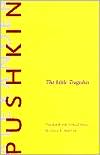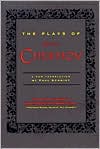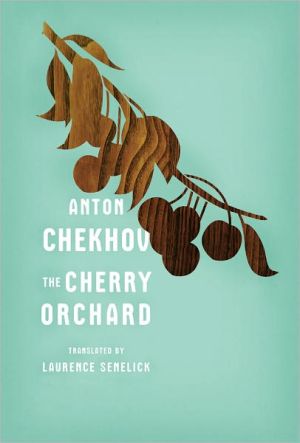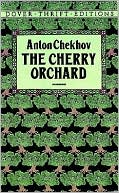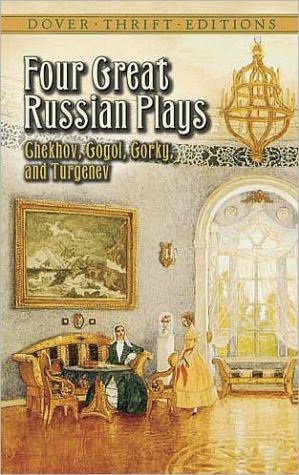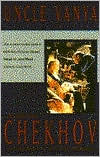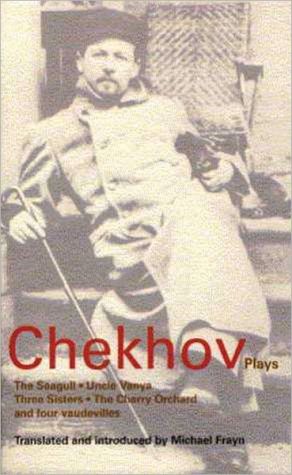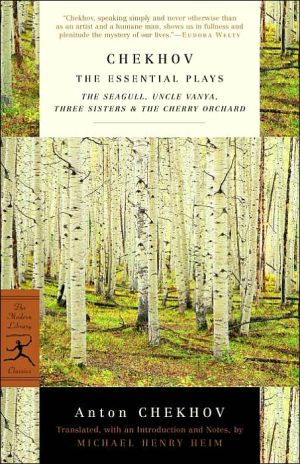The Little Tragedies
In a major burst of creativity, Russian poet Alexander Pushkin during just three months in 1830 completed Eugene Onegin, composed more than thirty lyric poems, wrote several short stories and folk tales, and penned the four short dramas in verse that comprise the "little tragedies." The "little tragedies" stand among the great masterpieces of Russian literature, yet they were last translated into English a quarter-century ago and have in recent years been out of print entirely. In this...
Search in google:
The Little Tragedies, written by Pushkin in the early 1830s, are highly compressed "chamber dramas", focusing on a protagonist at a crucial moment of moral choice - as Anderson puts it in her introduction, "each little tragedy begins in the fifth act." Far surpassing the previous translators, Anderson has sought to preserve the heightened intensity of Pushkin's diction while avoiding the archaic cadences of blank verse. Without sacrificing authenticity, Anderson has managed to translate these pieces into readable, twentieth-century English. Anderson has provided a substantial critical apparatus to the translations, including a lengthy introduction in which she both outlines the literary and historical context of the plays and explains her method as a translator. The volume also includes four critical essays (one on each tragedy), two of which Caryl Emerson has described as "the best ever written on these plays."Library JournalPushkin's four dramatic scenes in verse, known as The Little Tragedies, are skillfully translated by Anderson, an independent scholar. Written in 1830, these pieces include "The Miserly Knight," "Mozart and Salieri," "The Stone Guest," and "A Feast During the Plague." The theme of inner conflict dominates them all. Compared with Vladimir Nabokov's 1944 translation of three of the tragedies, Anderson's are more fluid, with flexible meters that will please contemporary English readers. The use of short scenes makes these translations suitable for acting. The translated text consists of only 66 pages; in addition, Anderson provides a scholarly introduction, four critical essays on each of the tragedies with line-by-line interpretations, and brief commentaries and notes for each tragedy. The book provides refreshing reading and scholarly research in one. Recommended for all academic and large public libraries.--Ming-ming Shen Kuo, Ball State Univ. Lib., Muncie IN Copyright 2000 Cahners Business Information.\\
The Little Tragedies\ \ By ALEXANDER PUSHKIN \ Yale University Press\ Copyright © 2000 Yale University\ All right reserved.\ ISBN: 0-300-08025-5 \ \ \ \ Chapter One\ The Little Tragedies in English: An Approach \ NONE OF PUSHKI'S WORK is so well known to English speakers as it should be, but the "little tragedies" are particularly underrepresented. In contrast to, for example, Eugene Onegin, of which several fairly good translations are available in English, translations of the "little tragedies" are few and frequently do not include all four plays. The reason translators largely avoid these works, I believe, is because of the difficulty in handling what in modern English literature is a completely disused genre, the drama in blank verse. T. S. Eliot, who strove to revive the form in his plays (Murder in the Cathedral, The Family Reunion, The Cocktail Party), has described the problems he encountered in writing a verse drama in two essays, Poetry and Drama and The Music of Poetry. These essays have a number of valuable insights to offer the would-be translator of the "little tragedies."\ Poetry and Drama addresses the questions of whether and how poetry could be used in a modern English play:\ Whether we use prose or verse on the stage, they are both but means to an end. The difference, from one point of view, is not so great as we might think. In those prose plays which survive, which are read and produced on the stage by later generations, the prose which the characters speak is as remote, for the best part, from the vocabulary, syntax and rhythm of our ordinary speech-with its fumbling for words, its constant recourse to approximation, its disorder and its unfinished sentences-as verse is. Like verse, it has been written, and rewritten.... I mean to draw a triple distinction: between prose, and verse, and our ordinary speech which is mostly below the level of either verse or prose. So if you look at it this way, it will appear that prose, on the stage, is as artificial as verse: or alternatively, that verse can be as natural as prose.\ Thus, for Eliot, the appropriate language for a play is not that which is most like how we speak, but that which is most like how we would speak if we could do so. It is idealized language, but to be dramatically convincing, it must be an idealization of the actual speech of its time. Moreover, because most of life is taken up with what we revealingly call prosaic matters, in most cases the appropriate language for the action of a play will be either prose or, if it is verse, verse that has no particularly great merit as poetry. Poetry should be used "only ... when the dramatic situation has reached such a point of intensity that poetry becomes the natural utterance, because then it is the only language in which the emotions can be expressed at all."\ One sees the logic of this argument by considering the difference between poetry and prose. Poetry may be described as a cross between prose and music. Both prose and music evoke emotion, but in different ways. Prose evokes an emotion in a particular context; music evokes emotion directly, without specifying the circumstance that gives rise to the emotion. In prose, a person may be joyous because he has fallen in love, or achieved a long-sought goal, or simply seen a cherry tree in bloom; but in any case, there is a stated cause for joy. Music conveys only the joy itself, although an individual hearer may associate a particular piece of music with a specific joyous event. Poetry, to the extent that it is akin to prose, evokes an emotion for a stated reason; but to the extent that it is akin to music, it evokes a more intense emotion than can be explained simply by pointing to the stated reason. When compared to prose, poetry has an emotional surcharge. It was this surcharge of which Lermontov was thinking when he wrote:\ [TEXT NOT REPRODUCIBLE IN ASCII]\ [There are speeches whose meaning is obscure or of no import, but it is impossible to hear them without being moved.]\ This emotional surcharge explains why nonpoets traditionally try to write poetry at moments of great emotional intensity, such as during first love or in wartime: they instinctively realize that this is the form capable of accommodating the greatest emotional content. This is also why in works like Shakespeare's tragedies or Pushkin's Boris Godunov, where prose and poetry are mixed, the prose is used for the more "everyday" speech of the characters, whereas the great setpiece monologues-the emotional peaks of the work-are in poetry.\ It follows, then, that a work like any of the "little tragedies," in which a pure emotional peak is sustained for the entire length of the work, can only be written in-and translated as-poetry. But having reached this conclusion, the translator then encounters a problem thus described by Eliot in The Music of Poetry:\ The history of blank verse illustrates two interesting and related points: the dependence upon speech and the striking difference, in what is prosodically the same form, between dramatic blank verse and blank verse employed for epical, philosophical, meditative and idyllic purposes. The dependence of verse upon speech is much more direct in dramatic poetry than in any other. In most kinds of poetry, the necessity for its reminding us of contemporary speech is reduced by the latitude allowed for personal idiosyncrasy.... But in dramatic verse the poet is speaking in one character after another, through the medium of a company of actors trained by a producer, and of different actors and different producers at different times: his idiom must be comprehensive of all the voices, but present at a deeper level than is necessary when the poet speaks only for himself. Some of Shakespeare's later verse is very elaborate and peculiar: but it remains the language, not of one person, but of a world of persons.... By the time of Otway dramatic blank verse has become artificial and at best reminiscent; and when we get to the verse plays by nineteenth century poets, of which the greatest is probably The Cenci, it is difficult to preserve any illusion of reality. Nearly all the greater poets of the last century tried their hands at verse plays. These plays, which few people read more than once, are treated with respect as fine poetry; and their insipidity is usually attributed to the fact that the authors, though great poets, were amateurs in the theatre. But even if the poets had had greater natural gifts for the theatre, or had toiled to acquire the craft, their plays would have been just as ineffective, unless their theatrical talent had shown them the necessity for a different kind of versification. It is not primarily lack of plot, or lack of action and suspense, or imperfect realization of character, or lack of anything of what is called "theatre," that makes these plays so lifeless: it is primarily that their rhythm of speech is something that we cannot associate with any human being except a poetry reader.\ Eliot does not profess to be able to explain fully why it was that although blank verse was properly rooted in the speech of society as a whole, and thus capable of being believably used in a drama with a wide range of characters, in the time of Shakespeare, it had lost such roots by the time of Browning and Tennyson. But he does suggest that a major factor was the influence of Milton:\ I should not care to advance any one reason why prose came to supersede verse in the theatre. But I feel sure that one reason why blank verse cannot be employed now in the drama is that so much non-dramatic poetry, and great non-dramatic poetry, has been written in it in the last three hundred years.... If we can imagine, as a flight of fancy, Milton coming before Shakespeare, Shakespeare would have had to discover quite a different medium from that which he used and perfected. Milton handled blank verse in a way which no one has ever approached or will ever approach: and in so doing did more than anyone or anything else to make it impossible for the drama: though we may also believe that dramatic blank verse had exhausted its resources, and had no future in any event. Indeed, Milton almost made blank verse impossible for any purpose for a couple of generations. It was the precursors of Wordsworth-Thomson, Young, Cowper-who made the first efforts to rescue it from the degradation to which the eighteenth-century imitators of Milton had reduced it.\ Eliot, then, sees Milton as a cosmic force exerting a gravitational field so powerful that for a time all English blank verse-both lyric and dramatic-is forced into orbit around him. By the time of Wordsworth, lyric blank verse had liberated itself from his overpowering effect and reconnected itself to the common spoken language of its day. But dramatic blank verse-perhaps already weakened by other, subtle factors-never achieved a similar liberation and reconnection. And yet such a connection with the spoken language of its day is most vital precisely in dramatic poetry, with its requirement that a range of characters speak in a manner appropriate to their natures.\ Applying Eliot's insights, one can see why English translations of the "little tragedies" are so few and often only partially successful. The translator is on the horns of a dilemma: if a translation is in prose, the added emotional effect associated with a poetic translation is lost; if a translation is in blank verse, the distance between the cadence of dramatic blank verse and that of the modern English language is so great that the reader or listener finds it impossible to believe that such a speech is an outpouring of the speaker's heart.\ What, then, is a would-be translator to do? I have no theoretical solution to offer, but I do have an empirical one. I have attempted to translate the "little tragedies" into language that, first, is vivid and modern enough to sound credible to a reader or listener and engage the emotions, and then to make that language as musical as it can possibly be made before losing its credibility. The result turned out to be what might be called a "semi-metrical" translation: its lines have a strong but not invariable tendency to be divisible into two-syllable feet, and their average length is around ten syllables, although individual lines may vary from six to fourteen syllables. Although it is not Pushkin's iambic pentameter, it is haunted by the ghost of that meter. But this suggestive similarity-sometimes quite striking, sometimes much fainter-was not what I consciously set out to produce; I merely wanted a language that was as compelling as possible. Intensity, more than anything else, is what the "little tragedies" are about. The reader or listener should be on the edge of his seat during them. Every means I could find to convey this intensity I have used; any form or device which diminishes it I have avoided. My principle has been that enunciated by A. K. Tolstoy in his translation of Goethe's Die Braut von Korinth and cited approvingly by Korney Chukovsky in his study of translation:\ I am trying ... as much as is possible, to be faithful to the original, but only when fidelity or exactness does not damage the artistic impression, and, without hesitating for a minute, I am deviating from a literal translation if that may produce a different impression in Russian than in German.\ I think that it's not necessary to translate the words and sometimes not even the meaning; the important thing is, one has to convey the impression.\ The reader of the translation has to be transported into the same sphere in which the reader of the original finds himself; the translation has to act on the same nerves.\ Chukovsky explicitly extends this principle to translating into a different meter when the original meter is culturally inappropriate in the target language:\ Into what meter, for example, should Lermontov's poetry be translated by Uzbeks, since for them the iambic tetrameter is an exoticism, something completely foreign to their system of poetics? In this case, equirhythmic translation would be unthinkable, because the rich, subtle and complex poetic tradition of the Uzbeks has no place for iambic tetrameter, and the Uzbeks, who over many centuries have accumulated enormous poetic experience, perceive a European verse form in a completely different manner than we do. When it came to, for example, translating Lermontov's "Hadji Abrek" into Uzbek, two outstanding Uzbek poets, Gafur Guliam and Sheikhzade, didn't even try to translate it into the same meter, because to an Uzbek's ear that is not equivalent to the impression which that same iamb produces on a Russian ear. Thus Gafur Guliam translated Lermontov's iambic tetrameter into a thirteen-syllable "barmak" line (that is, into syllabic verse), and Sheikhzade into a nine-syllable "barmak" line; and viewed against the traditional background of Uzbek poetry, this is the equivalent of iambic tetrameter.\ On the strength of Chukovsky's argument alone, even without regard for the particular problem presented by dramatic blank verse, one could make a case for a "semi-metrical" rather than strictly metrical translation of the "little tragedies." Contemporary poetry in English has moved so far toward free verse (still a rarity in Russian) that a strictly metrical translation sounds "dated" or "bookish" to a modern English speaker in the way that the original does not to a modern Russian speaker.\ Metrics, however, are not the only problem encountered in conveying an adequate impression of the "little tragedies." The vocabulary, too, needs to be sufficiently contemporary and forceful. To give an example: the Baron's second-scene monologue in The Miserly Knight begins in Russian with the words:\ [TEXT NOT REPRODUCIBLE IN ASCII]\ In A. F. B. Clark's translation this becomes:\ As some young scapegrace bides the trysting hour With some corrupt enchantress or perchance Some foolish girl seduced by him, so I All day abide the time when I shall come Down to my secret vault and trusty chests.\ In Nabokov's translation this reads:\ Just as a mad young fellow frets awaiting his rendezvous with some evasive harlot, or with the goose seduced by him, thus I have dreamt all day of coming down at last in vaulted dimness to my secret chests.\ And in Eugene M. Kayden's translation:\ As a young scamp who waits the trysting hour With some intriguing harlot or little fool He has seduced, thus I await daylong And dream of going down at last into This vaulted darkness to my secret chests.\ (Continues...)\ \ \ \ \ Excerpted from The Little Tragedies by ALEXANDER PUSHKIN Copyright © 2000 by Yale University. Excerpted by permission.\ All rights reserved. No part of this excerpt may be reproduced or reprinted without permission in writing from the publisher.\ Excerpts are provided by Dial-A-Book Inc. solely for the personal use of visitors to this web site. \ \
\ Library JournalPushkin's four dramatic scenes in verse, known as The Little Tragedies, are skillfully translated by Anderson, an independent scholar. Written in 1830, these pieces include "The Miserly Knight," "Mozart and Salieri," "The Stone Guest," and "A Feast During the Plague." The theme of inner conflict dominates them all. Compared with Vladimir Nabokov's 1944 translation of three of the tragedies, Anderson's are more fluid, with flexible meters that will please contemporary English readers. The use of short scenes makes these translations suitable for acting. The translated text consists of only 66 pages; in addition, Anderson provides a scholarly introduction, four critical essays on each of the tragedies with line-by-line interpretations, and brief commentaries and notes for each tragedy. The book provides refreshing reading and scholarly research in one. Recommended for all academic and large public libraries.--Ming-ming Shen Kuo, Ball State Univ. Lib., Muncie IN Copyright 2000 Cahners Business Information.\\\ \
